Recently, walking around the local markets or grocery stores in the Federal Capital Territory (Abuja) and other parts of the country, it is impossible to see people buying food items without complaining or grumbling ruefully.
For many families in Nigeria, feeding has become a challenge and almost impossible as prices of foodstuffs, vegetables, meat and beverages keep soaring almost on a daily basis. Food inflation has been on the rise in Nigeria due to multiple factors ranging from insecurity, government policies, COVID-19 pandemic, transportation among others. However, the constant attacks and killing of farmers by armed herdsmen and insurgents, especially in the food producing states, has left Nigeria producing less food to meet the people’s demands.
The Food and Agriculture Organisation (FAO) of the United Nations in its Cadre Hamonize (CH) report released in November 2020, on food security and nutrition analysis, envisaged that about 13.8 million people will be facing acute food shortage crisis between June and August 2021, adding that if measures are not taken in time to avert the hunger crisis, the number could grow to about 14 million.
According to a recent data released by the World Bank, soaring inflation and food prices pushed another seven million Nigerians into poverty in 2021. This is in addition to the 89.8 million Nigerians that are already poor, according to the Nigerian Living Standards Survey (NLSS) report published by the National Bureau of Statistics (NBS) in 2020.
The ‘Grow What You Eat’ Policy
Since 2015, President Muhammadu Buhari has advocated a “Grow what you eat’’ policy, to achieve food security and reduce food inflation by 2021. In a bid to achieve this, the federal government launched the Central Bank’s Anchor Borrowers Programme (ABP) to increase food production and reduce the country’s huge spending on foreign exchange to import food items that can be produced locally, hence he directed CBN not to offer Foreign Exchange (FX) to food importers, thereby forcing importers to source for dollars at parallel markets.
According to the President, Nigeria has to focus on agriculture which is the way out of over reliance on food importation, noting that the unbridled importation of food contributes to the depletion of the country’s foreign reserves and deprives citizens of job opportunities.
‘‘We must produce what we eat. We don’t have unlimited resources to continue the importation of food that can be produced locally.
“Fortunately, some Nigerians have shown foresight by building factories that process agricultural products within the country. They have created a value chain that boosts employment, protects foreign reserves and safeguards the economy from external shocks.
“We will do all that we can to encourage others to join in the efforts to achieve national self-sufficiency in food production,’’ he said.
To place further restriction on food importation, on August 21, 2019, the federal government ordered the closure of the Nigerian borders with neighboring countries to prevent smuggling of rice and other products, thereby halting trade between Nigeria and the remaining African countries with which it had signed the African Continental Free Trade Area (AfCTA) agreement.
Since its inception in 2015, the ABP has received about N190 billion disbursement from the CBN. Another N622 billion was lent through banks under the Commercial Agriculture Credit Scheme.
The Governor of the Central Bank of Nigeria (CBN), Godwin Emefiele disclosed that over 3.1 million farmers have been financed for the cultivation of crops across 21 agricultural commodities captured under the Anchor Borrowers’ Programme (ABP).

“A total of 3,107,890 farmers had been financed for the cultivation of 3,801,397 hectares across 21 commodities through 23 Participating Financial Institutions in the 36 States of the Federation and FCT, from the inception of the programme till date,” Emefiele explained.
To boost food production locally, Emefiele noted that the CBN planned to cultivate a minimum of one million hectares of rice through partnership with farmers of Rice Farmers Association of Nigeria (RIFAN) and prime or private anchors for each planting season in 2021.
While also unveiling production plans for maize, wheat, soybeans, cassava, sorghum and cassava, he explained that the bank’s backward integration drive with rice millers was also gaining momentum as the CBN intends to finance millers to grow their own paddy during the current wet season.
However, almost six years after the ‘grow what you eat’ policy and other measures put in place to boost food production, Nigeria still faces a food crisis.
Factors Responsible for Worsening Food Inflation
In spite of government’s huge spending on agriculture, agricultural productivity is still low in Nigeria, leading to higher food prices and denying Nigeria export revenues.
According to a report by the United Nations Food and Agricultural Organisation (FAO), Nigeria loses $10bn in annual export opportunity from groundnut, palm oil, cocoa and cotton alone due to inefficiency and low productivity.
Experts have attributed the spike in food prices to insecurity, insurgency, border closure, COVID-19 pandemic, devaluation of the naira, fall in oil prices and poor government policies.
They further argued that the federal government has aggressively pursued ill-judged interventionist policies since 2015, as it has poured billions into agricultural production without regard to efficiency and productivity, adding that yield per hectare for most farming is well below global standards, driving up the cost of whatever is left to be sold to Nigerians.
The experts also added that supply chain challenges after harvest still persist, leaving farmers to contend with middlemen, transportation, and storage.
Speaking at a meeting of the Monetary Policy Committee (MPC) earlier this year, the CBN Governor explained that the uptick in Nigeria’s food inflation is due to the worsening security situation in many parts of the country, especially in the food-producing areas in Nigeria, where farmers face frequent attacks by herdsmen and bandits in their various farms.
“While the Bank is intervening significantly in the agricultural sector, the rising insecurity in some food-producing areas is limiting the expected outcomes in terms of supply to the market, thus contributing to the rise in food prices,” Emefiele says.
Benue State, better known as the “food basket of the nation”, has had an age long farmers/herders clash, but the last two years has been the most devastating for people in this region, especially the farming communities.
Persistent attacks by armed herdsmen in these farming communities have chased most the farmers from their farmlands and in some cases, from the communities as a whole, with most of them now seeking solace in IDPs camps.
Persecondnews recalls that in April 2021, no fewer than 18 farmers were killed, and 50,000 Tiv farmers displaced from 13 villages in Doma Local Government Area (LGA) of Nasarawa State, by suspected armed herdsmen.
The displaced settlements include Dooshima, Antsa, Dooka, Angwan Yara, Ikyayior, Targema, Tse Tor, Chia, Umurayi, Dooga, Gindan Rail, Ajikamaka and Ankoma all in Ekye development area of Doma South.
Other local government areas that have faced constant attacks from herdsmen are Guma, Gwer-West, Gwer-East, Kastina-Ala, Ukum and Logo.
Food stuff, other Consumables now Double the Prices
Market surveys by Persecondnews across various local markets in the Federal Capital Territory (FCT) revealed that prices of most food stuff and other consumables are now twice the prices.
Items that witnessed the most increases recently include meat, eggs, tomatoes, pepper, noodles, bread, spaghetti, semovita, vegetable oil, satchet tomatoes, garri and beverages.
The market survey report showed that a kilogram of beef which sold for N1,500 now sells for N2,500.
A meat vendor at Kubwa village market, a suburb of FCT, Abdul Sani, disclosed to Persecondnews that the increment was due to the alarming increase in the price of cow.
“Cow is now very expensive. Cow that was sold between N200,000 to N250,000 is now being sold between N480,000 to N600,000. Some even sell as high as N700,000.
“There is little or no profit in this business any longer. We are just doing the business now because we can’t sit at home idle,” he stated.
Whoever thought Garri, which used to be referred to as a “poor man’s food”, will one day become a “rich man’s food”. Garri which used to be among the cheapest food item in the market, is no longer a cheap commodity, as the price have almost tripled the old price.

The survey showed that a cup of garri increased from N40 to N100; a basin of white and yellow garri increased from N4,500 and N6000 to N11,000 and N12,000 respectively. A bag of garri which was sold between N13,000 to N15,000 skyrocketed to 26,000.
Vegetables such as tomatoes, scotch bonnets pepper (Atarodo) and red bell pepper (tatashe) are also not spared from the price hike.
In the course of the survey, Persecondnews noticed a popular vegetable vendor, Bala Usman, with an empty table, except for onions, some local spices and his grinding engine.
When approached to inquire why he stopped selling tomatoes and pepper, he complained about the price hike.
“I didn’t stop totally, I will resume when the price comes down. I will just stick to grinding for customers for now.
“A dustbin basket of tomatoes formerly N500 is now N3000; Tatashe increased from N700 to N2500; Atarodo from N600 to N2900; Medium basket of tomatoes which was N4,500 now N15,000 while big basket of tomatoes that used to go for N7, 500 is now N35,000.
“Tomatoes is now very expensive because It has finished from Katsina, sokoto and Zamfara. You know bandits didn’t allow them farm much this year, so they couldn’t produce sufficient quantity like they use to in the past. The tomatoes you’re seeing in the market now is from Jos and Benue. Benue tomatoes is even more expensive; a rubber paint bucket of it is N18,000. There’s very little profit in the business now. In fact if you’re not careful you may not even see your profit,” he explained.
In same development, a visit to Utako market revealed that the price of beans increased from N700 to N1,000 per mudu, while a bag increased from N66,000 to N72,000; 1kg of Semovita increased from N4,500 to N5,800; 5liters of groundnut oil went up from N3,500 to N5,000; a carton of super pack of Indomie rose from N3,150 to N4,100 while Spaghetti jumped from N3,500 to N5,500 per carton, and a crate of egg also experienced an increase from N1,500 to N2,000.
Persecondnews discovered that most residents in Abuja, go as far as the popular Gwagwa Karmo market, a suburb of Abuja Municipal Area Council, to buy food items, because it’s “cheaper” there.
However a visit to the market showed a slight difference of between N100 to N200 in prices, as most of the sellers there are yet to exhaust their old stocks.
From the Farmers’ Angle
The last three years have not really been favorable for farmers, especially those in the north-central, north-east and north-west as they have faced series of challenges ranging from banditry, insurgency, herdsmen attack as well as increment in the price of fertilizer, animal feeds, chemicals and other farm inputs. This has significantly disrupted farming in these Nigeria’s main food-producing areas, thereby limiting food production and supply.
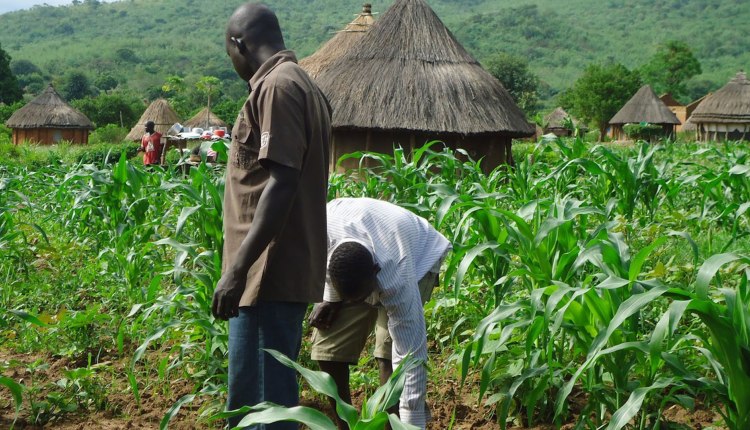
For farmers in Mararaba-Udege community in the Nasarawa Local Government Area of Nasarawa State, the frequent attacks by bandits on the Mararaba-Udege road which links Otukpo Oweto in Benue state, has not deterred them from going to their farms, as farming is their only source of livelihood.
Persecondnews met with some farmers on their farms recently, where they addressed their challenges.
“Asides the security situation and most times Fulani herdsmen destroying our crops with their cows, the high price of fertilizers and other chemicals we use on our farms, is also affecting us. Because of the the farmers/herdsmen crisis and kidnappings here, we can’t even go to the farm as early as we used to in the past, and we also leave the farm on time too. This is affecting the quantity of food we produce.
“When the Fulani herdsmen bring their cattle to destroy our crops, we are always scared of confronting them, because we do not want them to retaliate by attacking our community.
“We just want the government to put an end to all these problems so that we can farm in peace and also reduce the price of fertilizer so it will be affordable for us,” one of the farmers, Danladi Iro
suggested.
Also speaking in an exclusive interview with Persecondnews, one of the displaced farmers from Mbadwem community in Guma local government, presently languishing at the Mbawa IDPs camp in Daudu, Guma LGA of Benue State, lamented about not being able to go back home to continue his farming.
58-year-old Torkuma Shenenge, said he has spent almost his entire life on the farm; farming in both dry and raining season, but have become redundant for the past two years because he can’t go back to his community, let alone his farm.
“I was among the biggest farmers back in my community. I had a lot of yams and grains in my barn. Even after taking so many of the foods I harvest from my farm to the market; which I usually make huge sales from, I will still have enough to feed my two wives and nine children.
“In 2018, our community was attacked by armed herdsmen in the early hours of the morning. It was harvest period and we had just harvested so many yams and sweet potatoes. I was lucky to have been able to escape with my family, as so many people were killed and huts burnt to ashes.
“We escaped without taking even a tuber of yam. They burnt our houses, barns and even destroyed our farmlands. Almost everybody you see in this camp are farmers.
“It’s painful that I can’t feed my wives and children any longer. They have to go to the market on market days to pick spilled grains or beg for broken pieces of yam and sweet potatoes, for us to feed,” he lamented bitterly.
He further begged both the state and federal government to address the issue of insecurity in their communities, so they can all go back to their various communities to farm and live their normal lives.
A chat with one of the key players in the sale and distribution of fertilizers and other agricultural products to farmers in Nigeria, OCP Africa Fertilizers Nigeria Limited, revealed that the increment in fertilizer is as a result of the removal of subsidy from fertilizers and also the impact of forex on the cost of raw materials.
The organization, whose primary focus in Nigeria includes educating farmers and members of the supply chain about fertilizer needs and best practices, and increasing farmers’ access to financing and markets, disclosed that despite the high price of fertilizers, farmers are still buying, but their purchasing power is low.
“As at two to three years ago, the price of fertilizer was N5,500, but now it cost between N8,500 to N10,000. There are even some that goes as high as N14,000. The subsidy of fertilizer has been taken off, so it’s no longer business as usual. Everyone sells at their own price; it’s now an open market, so it’s a bit tough right now,” a staff of the organization who pleaded anonymity revealed.
Struggling Amidst Stagnant Income
Despite low or stagnant income, Nigerians are spending more on food items. This has greatly affected their monthly budget for food, as they spend more than half of their earnings on food, with some even cutting down their meals.
“This increase in the price of everything in the market has made life very difficult for almost everybody. Feeding is a problem for so many families now. Most people can no longer afford three square meals.
“Before now, I come to the market with between N25,000 to N30,000 and I buy almost everything I need, but I can’t do same now, because even with N50,000 I have to manage and cut down on some things for the money to be enough. As a civil servant, the high cost of foodstuff is really taking a huge toll on my salary,” a widow and mother of five, Mrs. Chidera Okafor told Persecondnews.
So many other people have taken to respective Facebook pages to express their concern and anger over the situation.
A Facebook user, Livingstone Onons, wrote: “The issue of food prices on the high side is so annoying; we spend all we have on transportation and feeding. In a country like Nigeria with fertile land and alot of mineral resources, feeding shouldn’t be a big deal.”
Another user, Musbau Adekunle, wrote “It’s really bad to the extent that we the students cannot afford to eat three square meals a day any longer. The federal government should please rise up and take up his responsibilities seriously because people are dying.”
“I went to the market yesterday and I nearly had heart attack when I couldn’t buy anything with N15,000. Before I could afford half bag of rice and beans with garri, but now I can’t even buy all of that again. May god help us all,” Ayobami Kazeem wrote.
In a nutshell, with the smallholder farmers scared of going to their farms due to rising insecurity with unchecked kidnappings and killings, Nigeria is clearly heading for a food crisis that needs to be stemmed or the effects would be even more devastating than insecurity, the World Bank warns.
It says food insecurity in Nigeria was beyond herdsmen/farmers’ violence. It recommended modernization and transformation of agriculture to increase food production, adding that government should demonstrate enough political will and should be proactive in confronting security challenges in an inclusive manner.






















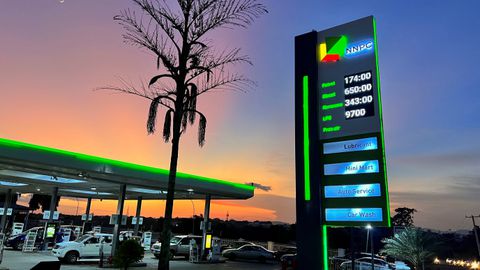










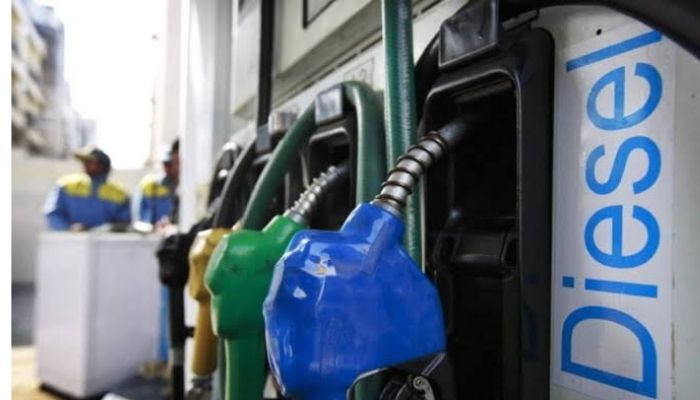

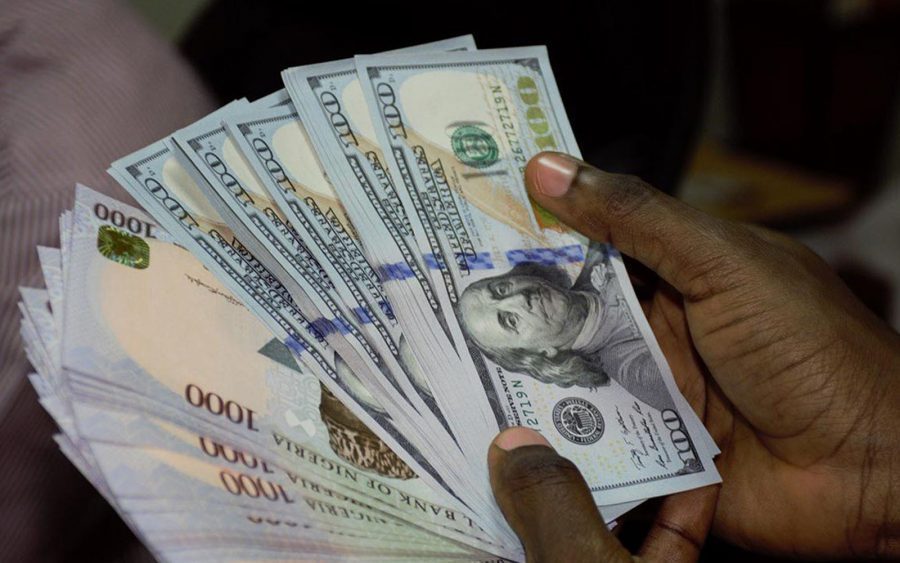

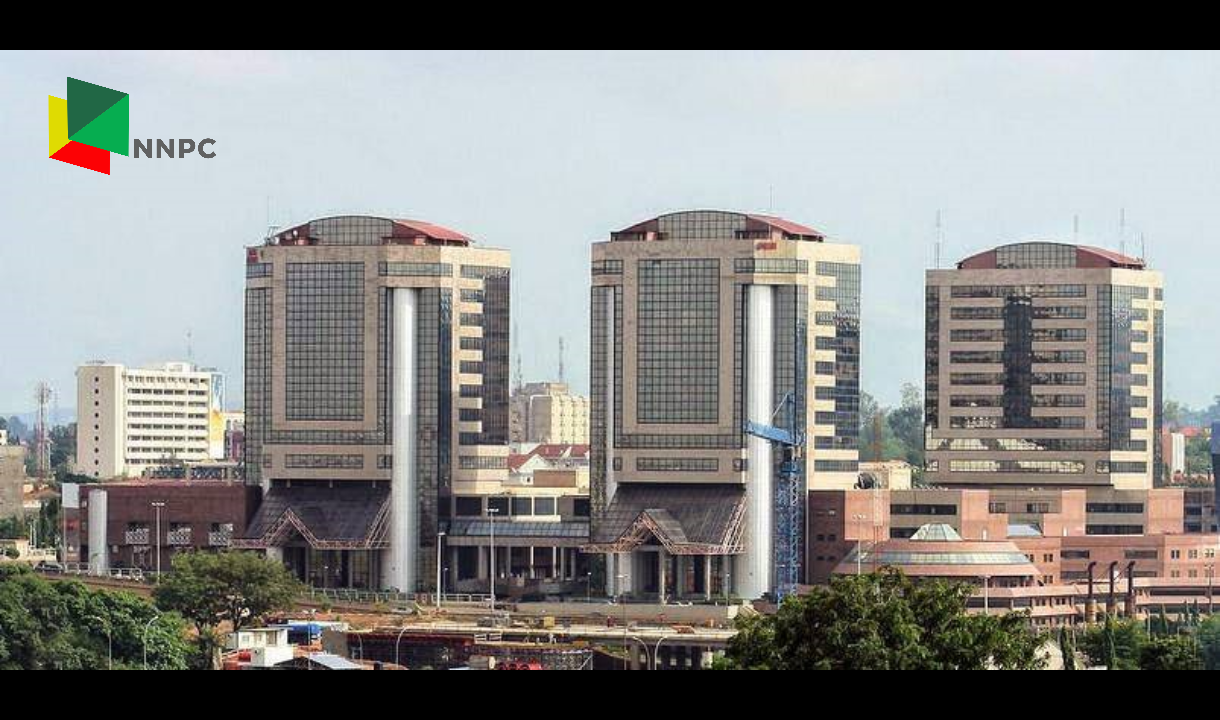
Leave a comment